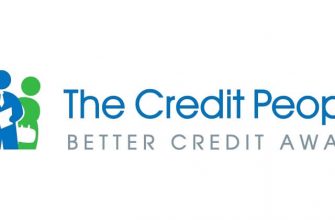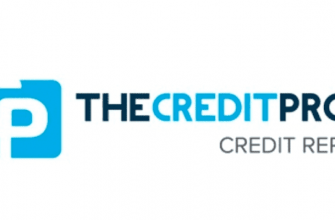Your status in the FICO system determines more than you may think. It is not just the loans you qualify for. Employers, landlords, and insurance companies all check credit scores to evaluate applicants. A poor borrowing history can prevent you from renting the perfect apartment or landing the job of your dreams. There are many reasons to get an 800 credit score, but this may be hard to pull off. Discover the most effective strategies in our guide.
In the FICO system, this high total puts you in the “exceptional” category. To understand how to get there, you need to know where you stand. It is easy to check the score through apps like Credit Sesame and Credit Karma or sites like myFICO.com. You may also download your reports free of charge.
The lowest possible value is 350, and the highest credit score is 850. According to Experian, anything under 579 is penurious. The three remaining categories are fair (580-669), good (670-739), and very good (740-799). To raise the indicator, you may fix it, rebuild it, or both. Obviously, the goal is daunting for consumers with poor borrowing records. Five proven strategies below can help anyone boost their creditworthiness.
How Good Is an 800 Credit Score?
The benefits of a credit score over 800 are plentiful and impressive. First, you become an eligible client, as lenders perceive you as trustworthy. When you apply for a mortgage or other forms of borrowing, the odds of getting approved are better.
Not only will you qualify for new loans, but you will also get better conditions, so borrowing will be cheaper. Clients with high totals enjoy lower interest rates. In the long term, they could save thousands of dollars on large loans like mortgages.
Of course, in the case of revolving credit (credit cards), anyone can avoid interest if they pay their entire balance monthly. However, a FICO score of 800 will allow you to qualify for cards with the most beneficial conditions. For example, you may get a promotional rate of 0% APR on all transactions. In this case, you do not have to cover the entire balance every month — pay it back gradually without any interest.
Finally, it is not only lenders that check your status — landlords, insurers, and even employers do it. Raising the total could help you secure the best job or apartment. So, how to get an 800 credit score?
How to Get an 800+ Credit Score?
This goal is attainable for everyone. You do not have to be wealthy or have connections in high places to improve your credit to the exceptional level. Your ability to manage finances wisely is the key prerequisite. Eight hundred may seem elusive, but it is achievable. The question is how long it will take. Naturally, if you are currently in the “poor credit” category, this is no piece of cake.
First, check your credit report from each of the three bureaus to see if the total is objective. Next, use our tips to boost it to the desired level. These recommendations work for borrowers with and without derogatories on official records. Here is how to increase credit score to 800.
Never Miss Payments
Your payment history constitutes 35% of your FICO total. It is also quite influential in the second most common system — VantageScore. Making payments on time is absolutely crucial if you want a 800 credit score. If you miss one by accident, ask the lender not to share this information with the bureaus.
Contact them before they report the missed payment (lenders have a 30- or 60-day reporting cycle). Just pick up the phone and make the call. If you have been careful with your previous payments, you may be forgiven. This could work once or twice only, and the lender has no obligation to comply.
Once the derogatory appears on your report, it is difficult to erase it. As this entry is accurate, all you can do is ask the lender to exclude it from the reported data. This is done formally using so-called “goodwill letters.” Again, the lender is not obliged to grant your request. If you are out of luck, the item will tarnish your credit report for seven years! To conclude, if you happen to miss a payment, take action immediately.
Reduce Credit Card Balances
The lower they are — the lower your credit utilization ratio. This percentage shows how much of your available credit amount is being used. Experts offer different interpretations of the perfect threshold. Experian sets it at 30%, while other sources place it lower — at 10%. According to the bureau, most consumers with 800 or more points have a rate of 11.5% on average: clearly, the lower — the better.
Utilization is calculated by dividing the sum of current balances by the total of available limits (multiply by 100 to get the percentage). For instance, if you have a card with a limit of $1,500, and your balance is $750, utilization is 50% — extremely high. You would need to pay off most of the balance to bring the proportion to 11.5% (this equals $172.50).
Limit New Credit Inquiries
Every time a lender accesses your credit history, this leaves a hard inquiry. This entry stays on the records for two years and affects the indicator for 12 months. The influence is modest — just 10% of the FICO total. Still, the more inquiries — the lower your status.
Therefore, think twice before applying for another loan or credit card. Weigh up the pros and cons. While 10% may seem negligible, it could be the difference between 800 and 780. If you really need to borrow more, study the requirements thoroughly. Make sure you fit the criteria, so you will not have to re-apply.
Multiple inquiries may prevent you from reaching a credit score over 800. To lenders, you come across as a desperate or insolvent borrower. Naturally, this is not the impression anyone would like to make. The good news is that inquiries for similar forms of borrowing (i.e., mortgage) over a certain period (between 14 and 45 days) may be combined into a single entry. It depends on the scoring system.
Monitor Reports and Dispute Errors

Your position in the FICO system depends on the data from three major bureaus — Experian, Equifax, and TransUnion. Their reports may be flawed. This unfairly affects the total, so you cannot get an 800 credit score.
Go to www.annualcreditreport.com to request a free copy from each of the agencies. Before the pandemic, this was allowed once a year. Now, until April 20, 2022, you can collect this information every week.
Mistakes range from misspelled personal details to false entries like evictions or bankruptcies. Every lender may communicate with only one agency, so gather all three documents to have an aggregate picture. Go through the records line by line to spot inaccuracies. Then, take measures to repair the score. The best way to raise it is by hiring a reliable repair company. Find out about the best credit repair services in 2021.
Few consumers have enough patience and expertise to manage the dispute process. Experts will provide advice, identify the most damaging entries, collect evidence for disproval and liaise with creditors and bureaus. They will send dispute letters and other correspondence on your behalf. For example, the basic plan by Credit Saint includes five challenges monthly. By law, bureaus have 30 days to respond. When derogatories vanish, the score rises instantly.
Let Negative Information Age
Most derogatories vanish from credit history automatically in 7 years. If the tarnishing entries are accurate, there is no way to remove them. Instead of fixing your records, rebuild them. This endeavor may take years, but it is the only way to get to 800 with a history of late payments and other adverse events. If the items are particularly damaging (for instance, Chapter 7 bankruptcy is removed in 10 years), this is the worst-case scenario.
You will need to work on your spending habits to become a reliable borrower with an 800 credit score. Make all of your payments on time. Take out new loans and pay them back. Companies like The Credit Pros offer a specific credit line: their clients may fix and rebuild their histories in parallel. Such companies will also educate you on the subject of restoration, suggesting the best way in your case.
How Long Does It Take to Get an 800 Credit Score?

It depends on your current status. How many points separate you from the best FICO score? In theory, you could gain as much as 100 in 30 days. For instance, in addition to the suggested methods, including utility or cell phone payments through Experian Boost, you could add 8-12 points instantly. Consumers without derogatories can join the 800 credit score club the fastest.
The age of your records matters, so young borrowers can achieve a lot with a lower utilization ratio. A new credit card will boost the sum of available limits, helping you achieve a high credit score. On the other hand, a history of late or missed payment is the most challenging to remedy. You will need to wait for years before the total finally jumps to 800.
Aside from timely payments (a few years of perfect history), the best credit score possible requires a good “mix of credit” — a combination of various products. This includes installment loans and revolving forms like credit cards.
For instance, you may have a couple of cards, a mortgage, and an auto loan. The key is to manage different borrowing systems successfully. This will characterize you as an experienced consumer — someone capable of fulfilling various types of obligations. Pay attention to the length of credit history — the account must be a few years old to confirm this.
If you need to repair the score, the length depends on the number of false entries. The firm may only dispute a limited number of items per billing cycle (depending on the plan). Choose companies with a money-back guarantee: if no items are removed within 60 or 90 days, you will get a refund. Some firms have unconditional money-back policies (for instance, Sky Blue Credit Repair).
Conclusion
A high credit score unlocks the best conditions from lenders. It is also good for your employment, insurance, and rent. Getting to 800 may be difficult, but it is possible. There are many ways to raise the score, especially if your reports do not document late payments. Finally, remember that achieving the goal is only the beginning — you will also need to maintain it.








